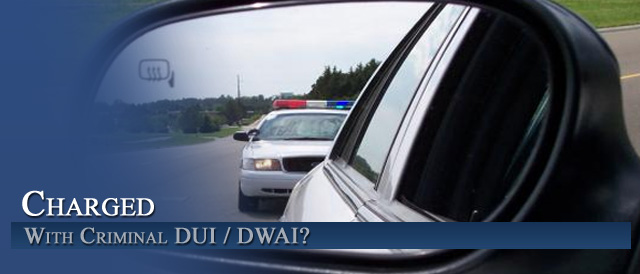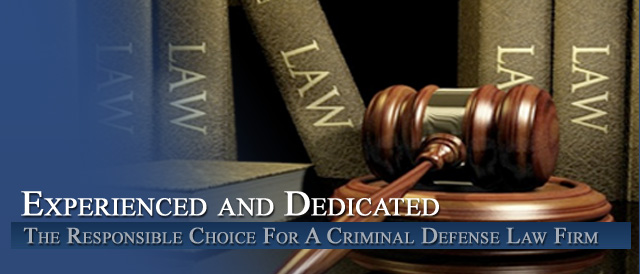




A Comprehensive Look At Understanding Colorado DUID – Drugged Driving – Marijuana Driving Cases – Part I
By H. Michael Steinberg Colorado DUI – DWAI – DUID Criminal Defense Lawyer – Attorney – Email: [email protected]
A Comprehensive Look At Understanding Colorado DUID – Drugged Driving – Marijuana Driving Cases – Part I – This article explores both the law and the practical proof aspects of so called drug or “marijuana” driving in Colorado after the legalization of “recreational marijuana” in January of 2014.
Colorado Drugged – DUID – Driving Laws
In Colorado, a person is guilty of a DUI, DWAI or DUID if he or she operates a motor vehicle while under the influence of alcohol and/or one or more drugs.
Colorado DUID Laws:
42-4-1301. Driving under the influence – driving while impaired – driving with excessive alcoholic content – definitions – penalties
(1) (a) It is a misdemeanor for any person who is under the influence of alcohol or one or more drugs, or a combination of both alcohol and one or more drugs, to drive a motor vehicle or vehicle.
(b) It is a misdemeanor for any person who is impaired by alcohol or by one or more drugs, or by a combination of alcohol and one or more drugs, to drive a motor vehicle or vehicle.
….
(d) As used in this section, one or more drugs means any drug, as defined in section 27-80-203 (13), C.R.S., any controlled substance, as defined in section 18-18-102 (5), C.R.S., and any inhaled glue, aerosol, or other toxic vapor or vapors, as defined in section 18-18-412, C.R.S.
(f) “Driving under the influence” means driving a motor vehicle or vehicle when a person has consumed alcohol or one or more drugs, or a combination of alcohol and one or more drugs, that affects the person to a degree that the person is substantially incapable, either mentally or physically, or both mentally and physically, to exercise clear judgment, sufficient physical control, or due care in the safe operation of a vehicle.
(g) “Driving while ability impaired” means driving a motor vehicle or vehicle when a person has consumed alcohol or one or more drugs, or a combination of both alcohol and one or more drugs, that affects the person to the slightest degree so that the person is less able than the person ordinarily would have been, either mentally or physically, or both mentally and physically, to exercise clear judgment, sufficient physical control, or due care in the safe operation of a vehicle.
There Is No “Affirmative Defense” To A Charged of Marijuana or Drugged Driving For Medical Marijuana
After 2014 – the fact that any person charged is or has been entitled to use one or more drugs under the laws of this state, including the legal or medical use of marijuana does NOT constitute a defense against any charge of violating this subsection. � 42-4-1301(1)(e).
The rule is this – if a substance has impaired your ability to operate a motor vehicle – it is ALWAYS illegal for you to be driving, even if that substance is prescribed or is legally acquired.
Here is the precise wording of the law:
(e) The fact that any person charged with a violation of this subsection (1) is or has been entitled to use one or more drugs under the laws of this state, including, but not limited to, the medical use of marijuana pursuant to section 18-18-406.3, C.R.S., shall not constitute a defense against any charge of violating this subsection (1).
Understanding Colorado DUID – Drugged Driving – Marijuana Driving Cases – The New Limit For Marijuana Driving 5 Nanograms – A Permissible Inference
With reference to Driving Under the Influence of Marijuana, if at the time of driving or within a reasonable time thereafter, the driver’s blood contains five nanograms or more of delta 9-tetrahydrocannabinol per milliliter in whole blood, as shown by analysis of the defendant’s blood, such fact gives rise to a permissible inference that the defendant was under the influence of one or more drugs.
If My Blood Comes Back With A 5 Nanogram Level Or Higher – What Is A Permissible Inference Under Colorado Law?
If your blood test shows a 5 nanogram level or higher – the jury is instructed at your trial that they can make a finding of a “permissible inference” that you were impaired at the time of your driving. Unlike a “per se measure” or a “presumptive inference,” (such as the law governing alcohol’s .08 BAC or higher blood alcohol level which creates a “rebuttable presumption” that you were under the influence of alcohol at the time of their driving) – the accused can argue they were NOT impaired and the THC was not affecting their driving.
While these terms are extreme examples of “legalese” – the difference between the two jury instructions on the effect of the test result can be substantial. The alcohol test result instruction is much stronger harsher to the rights of the defendant – accused.
The point of all this is that to try and predict whether an individual is impaired based solely on blood THC concentrations alone runs contrary to the National Highway Traffic Safety Administration (NHTSA’s) analysis of these cases.
The Bad News – Blood Levels Of THC Can Run Very High – Very Quickly
A report by the National Highway Traffic Safety Administration states that it does not take much to bring a person over Colorado’s legal level. Their study revealed that a single puff from a marijuana joint can be enough to elevate THC levels over three times the legal limit and THC can stay in the bloodstream in measurable quantities for hours.
But impairment for the individual means that the state prove beyond a reasonable doubt thst THIS person’s driving was impaired by the consumption of marijuana in THIS case under THESE facts. That is much more difficult.
In Addition To The “Permissible Inference” Allowed Under The 5 Nanogram Limit – How Do The Police And DA Prove Impairment By Marijuana In The Specific Case?
Attacking the training of Colorado Law Enforcement Officers in the detection of impairment caused by drugs is one of the fundamental approaches used by Colorado criminal defense lawyers to attack the State’s case at trial.
Some Colorado Law Enforcement Officers are – at present – have received and continue to receive training in what they call “Advanced Roadside Impaired Driving Enforcement (ARIDE) training. Lawyers must study this training as well as law officers allegedly trained as Drug Recognition Experts (DRE).
Other Evidence Of The Consumption And Possible Impairment Of Marijuana May Support The State’s Case
Not only does Colorado’s open container law make it illegal to have marijuana in the passenger area of a vehicle if it is in an open container, container with a broken seal, …if there is evidence that marijuana has been recently consumed, it can also be used to establish impairment as such evidence can be used in the analogous alcohol impairment case.
Counterattack – Marijuana and Driving – Using Scientific Evidence To Prove The Accused Is NOT Impaired By Marijuana
There is a large body of evidence to establish that alcohol and marijuana are very different in the human body – much more is known about the impairment impacts of alcohol than marijuana
While cannabis “intoxication” has been shown to mildly impair psychomotor skills, the kind of impairment by marijuana is not as severe or as long lasting.
Alcohol and marijuana – very different physiologies – A person under the influence of marijuana is more aware of his or her impairment and compensate for it accordingly. It has been established through research that marijuana “impaired” drivers react to the marijuana by slowing down and by focusing their attention when they know a response will be required.
This reaction is the exact opposite of that exhibited by drivers under the influence of alcohol. Alcohol intoxicated drivers tend to drive in a more risky manner proportional to their intoxication.
For the rest of this article – go to Part II (in progress)
Understanding Colorado DUID – Drugged Driving – Marijuana Driving Cases
ABOUT THE AUTHOR: H. Michael Steinberg – A Denver Colorado DUI – DWAI – DUID Criminal Defense Lawyer – or call his office at 303-627-7777 during business hours – or call his cell if you cannot wait and need his immediate assistance – 720-220-2277.
If you are charged with A Colorado crime or you have questions about Understanding Colorado DUID – Drugged Driving – Marijuana Driving Cases, please call our office. The Law Offices of H. Michael Steinberg, in Denver, Colorado, provide criminal defense clients with effective, efficient, intelligent and strong legal advocacy. We can educate you and help you navigate the stressful and complex legal process related to your criminal defense issue.
 H. Michael Steinberg, is a Denver, Colorado criminal defense lawyer with over 40 years of day to day courtroom experience – specializing in Colorado Criminal Law along the Front Range. He will provide you with a free initial case consultation to evaluate your legal issues and to answer your questions with an honest assessment of your options. Remember, it costs NOTHING to discuss your case. Call now for an immediate free phone consultation.
H. Michael Steinberg, is a Denver, Colorado criminal defense lawyer with over 40 years of day to day courtroom experience – specializing in Colorado Criminal Law along the Front Range. He will provide you with a free initial case consultation to evaluate your legal issues and to answer your questions with an honest assessment of your options. Remember, it costs NOTHING to discuss your case. Call now for an immediate free phone consultation.
Helping Clients To Make Informed Decisions In the Defense of Colorado Criminal Cases.
Contact A Lawyer with Three Decades of Experience as a Denver Criminal Attorney at The Steinberg Colorado Criminal Defense Law Firm Today.
Colorado Defense Lawyer H. Michael Steinberg provides solid criminal defense for clients throughout the Front Range of Colorado – including the City and County courts of Adams County, Arapahoe County, City and County of Boulder, City and County of Broomfield, City and County of Denver, Douglas County, El Paso County – Colorado Springs, Gilpin County, Jefferson County, Larimer County, and Weld County,…. and all the other cities and counties of Colorado along the I-25 Corridor… on cases involving Understanding Colorado DUID – Drugged Driving – Marijuana Driving Cases.
Other Articles of Interest:
- Colorado “Drugged Driving” – Marijuana DUID Cases
- Marijuana Drug Driving In Colorado and the DUID Law
- A Colorado Comprehensive DUI – DWAI Penalties Sentencing Chart
- A Comprehensive Look At Understanding Colorado DUID – Drugged Driving – Marijuana Driving Cases – Part Il
- What Are Colorado’s Open Container Laws – Who Can Be Charged? – Alcohol – Marijuana













